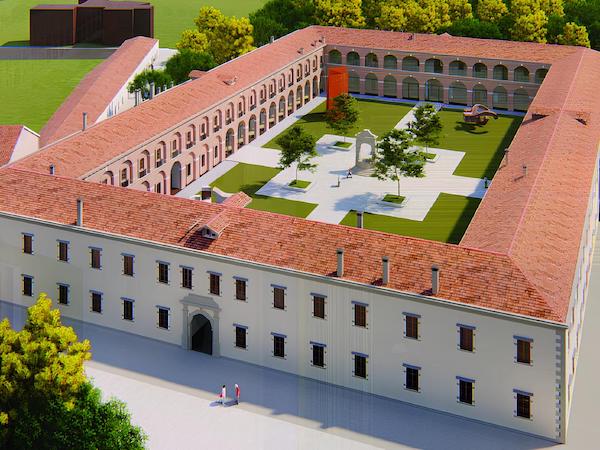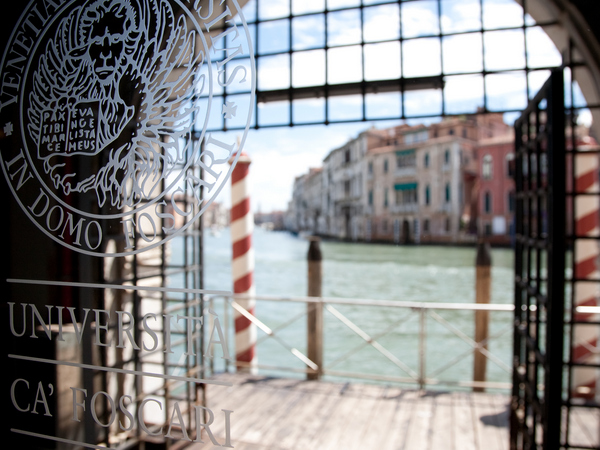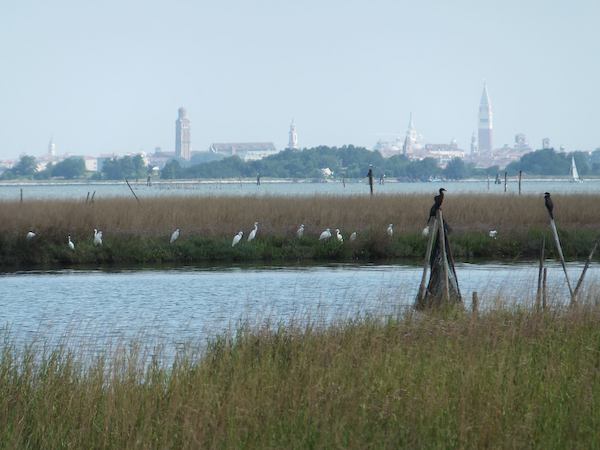«Disclosing collections» is a new series on Digital Humanities published by Edizioni Ca’ Foscari and directed by Franz Fischer and Holger Essler. The first volume, I secoli di Venezia. Dai documenti dell’Archivio di Stato, was curated by Andrea Pelizza and contains the catalogue of the virtual exhibition prepared by the Venetian State Archives for the city’s 1600 anniversary — it is the product of a collaboration between the Archives and Ca’ Foscari University of Venice.

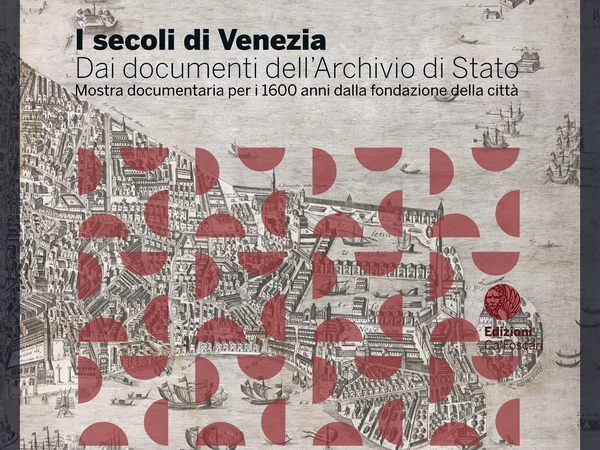
The second volume, curated by Diego Mantoan, will focus on the analysis and the adjustment of digital identity and of IT systems that manage, study and enhance the value of the heritage preserved at Museo di Arte Moderna Mario Rimoldi in Cortina d’Ampezzo.
These publications are an excellent example of how digital technology can be harnessed to promote research, studies, and dissemination in the humanities.
This is the objective that Ca’ Foscari is pursuing with the Venice Centre for Digital and Public Humanities (VeDPH), which is part of the Department of Humanities and is directed by Professor Franz Fischer, a philologist and professor of digital philology applied to literary texts and documents from antiquity to the present. The Centre works to facilitate the development, accessibility and dissemination of research projects, with innovative approaches. Academics who are engaged in research and in the application of digital technology to the entire gamut of the humanities, and in particular the fields of history, art history, textual analysis, and archaeology.
“DH at Ca’ Foscari are an example of excellence both nationally and internationally,” says Professor Fischer. “The new global community of researchers — such as ERC grantees — must present its research in ways that are open, accessible and digital. Our centre has about eighty members, all of whom are engaged in their respective fields but also interested in using digital tools to promote scientific dissemination. We have created a platform for the sharing of competences and the application of IT and digital architecture to the humanities. We offer advice to academics who wish to share their knowledge with a wide, international audience, by developing, in addition to more ‘traditional’ research publications, some innovative digital products and public events of broad scope.
For example, in the field of Philology we create digital editions of philosophical commentaries, Mediaeval diagrammatic texts, ancient inscriptions copied and passed on in 18th-century manuscripts. Accordingly, we are studying the Venetian epigrams of Johann Wolfgang von Goethe — which are erotic poems with shockingly explicit terminology — and the early-19th century travel diary of Sir William Gell, a pioneering British illustrator and archaeologist. We also curate a digital archive of Latin poetry from its origins to the Italian Renaissance, and we work on many other texts by collaborating with archives, libraries, academic and private institutions.
Moreover, artificial intelligence is being increasingly employed to aid the recognition and the study of a great number of handwritten documents that would otherwise be impossible to read. These applications are particularly important for people — such as archaeologists — who discover unpublished texts or remnants. DH also allow academics to produce a virtual reconstruction of the missing context, or to complete texts and objects. Thanks to the application of digital technology, these documents can be explored and analysed in detail — and even enhanced.
Let’s consider, for example, Imaging Technology. Multispectral Imaging (MSI) and Reflectance Transformation Imaging (RTI) allow us to perceive details that cannot be seen by the human eye.”
The technology
The equipment that is needed to conduct this type of research will soon be made available inside a new laboratory for experiments by researchers and students. The laboratory will contain a 3D digital microscope to observe and measure non-homogeneous surfaces and other objects with high-resolution images and great depth of field. Eye trackers and EEG headsets will be available for the study of cognitive and emotional processes involved in the production and transmission of texts, or in the experience of cultural events in museums or archaeological sites, be they real or reproduced with immersive virtual reality tools.
Teaching and research
One of the research projects promoted by VeDPH is Venice Rivers Collection, by Elisa Corrò. Her research merges archeology and digital technology to promote innovative solutions and involve the general public in events, making the public participate in the transformation of Venice’s canals across the centuries. Working in the Centre, RaiStoria collaborator Leonardo Campus produced a documentary on media representation of Italian racial laws in the aftermath of WWII, using an online multimedia platform that uses a vast gamut of sources — including Rai videos — to analyse an important phenomenon in recent history.
In September 2022 our community celebrated the graduation of Antonello Mori, the first graduate of the Master’s Degree Programme in Digital and Public Humanities, who worked on an unpublished correspondence that is stored at the State Archive in Florence and dates back to the first half of the 17th century. Mori used that material to create a computer-animated video intended for a non-academic public, as well as an algorithm that, by applying the XML standard to those particular documents, allows for a series of quantitative and qualitative analyses. These products were then shared on a website created by the student himself (https://newsfromsalvetti.eu/). Another student of the programme, Elena Barchielli, is currently developing a protocol for the description of image data and metadata, as part of a wider project that involves the Centre and Galleria Borghese di Roma. The project aims to employ a VR360 digital environment to make the information on museum exhibitions more accessible.
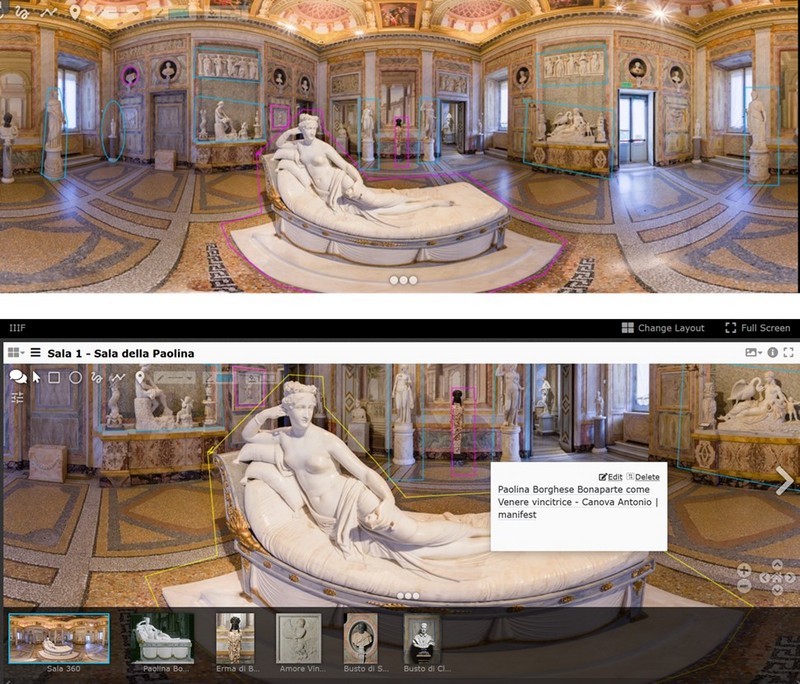
In summer 2022, the Venice Summer School in Digital and Public Humanities was inaugurated. The programme, which is entirely in English, received hundreds of international applications. The aim of the weekly full immersion is to develop competences and technical skills in material and source digitalisation and modelling, in the analysis and visualisation of multimedia data, as well as in the development of methods for involving the public in the elaboration and presentation of research. In November 2022, "Hidden in Plain Sight", a virtual ‘non-curated’ exhibition of Tetrarchs and Arsenal Lions of Venice that resulted from the activities of the Summer School, was inaugurated. The exhibition will be open until 15 January 2023.





